Filter by
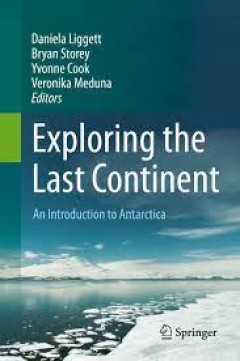
Exploring the Last Continent An Introduction to Antarctica
This multi-disciplinary book will cater to students and those who want to have a more critical look behind the scenes of Antarctic science. This book will take a systems approach to providing insights into Antarctic ecosystems and the geophysical environment. Further, the book will link these insights to a discussion of current issues, such as climate change, bio prospecting, environmental mana…
- Edition
- -
- ISBN/ISSN
- 978-3-319-18947-5
- Collation
- IX, 597
- Series Title
- -
- Call Number
- -
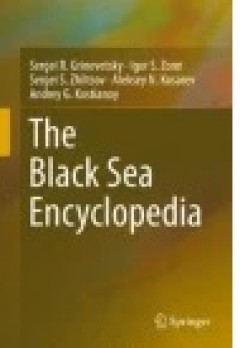
The Black Sea Encyclopedia
This publication contains over 1500 articles and terms providing descriptions of geographical and oceanographic features, cities, ports, transport routes, marine biological resources, international treaties, national and international programs, research institutions, historical and archaeological monuments, activities of prominent scientists, researchers, travelers, military commanders, etc. wh…
- Edition
- -
- ISBN/ISSN
- 978-3-642-55227-4
- Collation
- VI, 889
- Series Title
- Encyclopedia of Seas Encyclopedia of Seas
- Call Number
- -
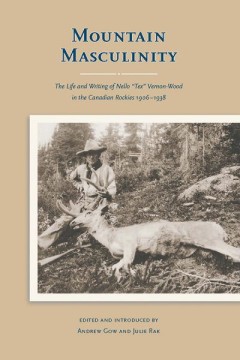
Mountain Masculinity The Life and Writing of Nello “Tex” Vernon-Wood in …
In 1906, Nello Vernon-Wood (1882–1978) reinvented himself as Tex Wood, Banff hunting guide and writer of “yarns of the wilderness by a competent outdoorsman.” His homespun stories of a vanishing era, in such periodicals as The Sportsman, Hunting and Fishing, and the Canadian Alpine Journal, have much to tell us about the west as envisioned by those who wanted to leave the industrialized w…
- Edition
- -
- ISBN/ISSN
- 9781897425022.01
- Collation
- -
- Series Title
- -
- Call Number
- 237 pages
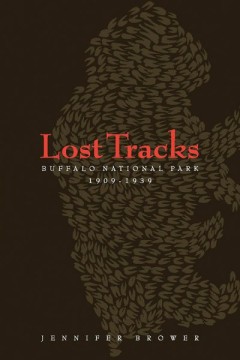
Lost Tracks Buffalo National Park, 1909–1939
While contemporaries and historians alike hailed the establishment of Buffalo National Park in Wainwright, Alberta as a wildlife saving effort, the political climate of the early twentieth century worked against its efforts to stem the decline of the plains buffalo in North America. However, the branch charged with operating the park, the Canadian Parks Branch, was never sufficiently funded and…
- Edition
- -
- ISBN/ISSN
- 9781897425107.01
- Collation
- -
- Series Title
- -
- Call Number
- 193 pages
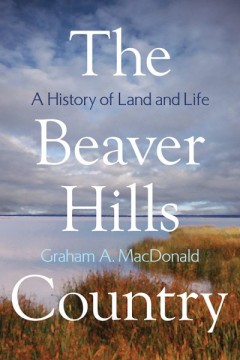
The Beaver Hills Country A History of Land and Life
This book explores a relatively small but interesting and unusual region of Alberta between the North Saskatchewan and the Battle Rivers. The Beaver Hills arose where mountain glaciers from the west met continental ice-sheets from the east to create a complex and diverse landscape. MacDonald relates how climate, water levels, wildlife, vegetation, and fire have shaped the possibilities and prov…
- Edition
- -
- ISBN/ISSN
- 978-1-897425-37-4
- Collation
- -
- Series Title
- -
- Call Number
- 264 pages

Optimal Trajectory Planning and Train Scheduling for Urban Rail Transit Systems
This book contributes to making urban rail transport fast, punctual and energy-efficient –significant factors in the importance of public transportation systems to economic, environmental and social requirements at both municipal and national levels. It proposes new methods for shortening passenger travel times and for reducing energy consumption, addressing two major topics: (1) train traje…
- Edition
- 1
- ISBN/ISSN
- 978-3-319-30888-3
- Collation
- XXI, 180
- Series Title
- Advances in Industrial Control
- Call Number
- -
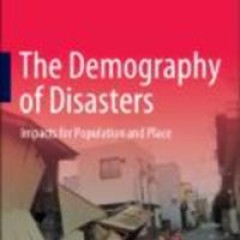
The Demography of Disasters : Impacts for Population and Place
This open access book provides worldwide examples demonstrating the importance of the interplay between demography and disasters in regions and spatially. It marks an advance in practical and theoretical insights for understanding the role of demography in planning for and mitigating impacts from disasters in developed nations.
- Edition
- -
- ISBN/ISSN
- 978-3-030-49920-4
- Collation
- XVII, 268 halaman
- Series Title
- -
- Call Number
- 910 DEM
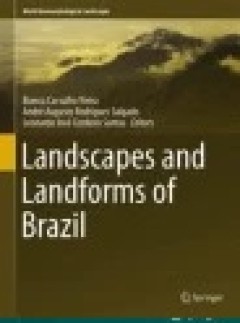
Landscapes and Landforms of Brazil
This book presents Brazil as a country of continental dimensions. Its territory has a large variety of rock types, geological structures and climates. The country has a large variety of landscapes, such as the humid plains of the Amazon River, the dry plateaus of the semi-arid region or the subtropical mountains of the southern region. On the coast, some plateaus and mountains, like the Serra d…
- Edition
- -
- ISBN/ISSN
- 978-94-017-8023-0
- Collation
- -
- Series Title
- -
- Call Number
- -
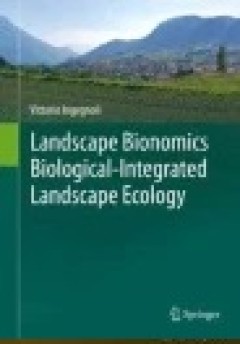
Landscape Bionomics Biological-Integrated Landscape Ecology
"Landscape Bionomics,” or “Bio-integrated Landscape Ecology,” radically transforms the main principles of traditional Landscape Ecology by recognizing the landscape as a living entity rather than merely the spatial distribution of species and communities on the territory, often analysed in separate themes (water, species, pollution, etc.). To be more exact, the landscape is identified as …
- Edition
- -
- ISBN/ISSN
- 978-88-470-5226-0
- Collation
- -
- Series Title
- -
- Call Number
- -
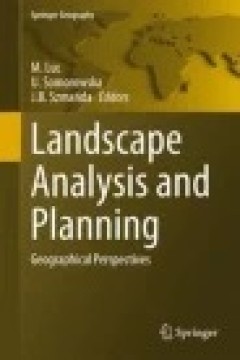
Landscape Analysis and Planning: Geographical Perspectives
This book presents recent advances in landscape analysis and landscape planning based on selected studies conducted in different parts of Europe. Included are methodological problems and case studies presented and discussed during scientific sessions organized by the Commission of Landscape Analysis and Landscape Planning of the International Geographical Union (IGU) within the framework of the…
- Edition
- -
- ISBN/ISSN
- 978-3-319-13527-4
- Collation
- -
- Series Title
- -
- Call Number
- -
 Computer Science, Information & General Works
Computer Science, Information & General Works  Philosophy & Psychology
Philosophy & Psychology  Religion
Religion  Social Sciences
Social Sciences  Language
Language  Pure Science
Pure Science  Applied Sciences
Applied Sciences  Art & Recreation
Art & Recreation  Literature
Literature  History & Geography
History & Geography